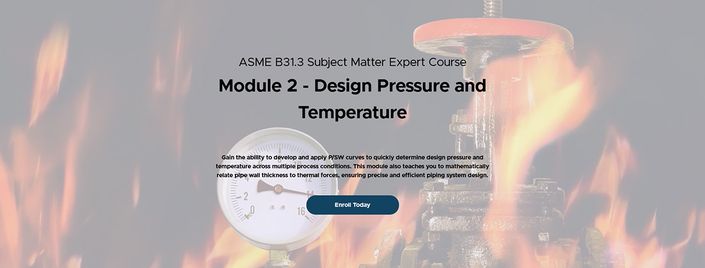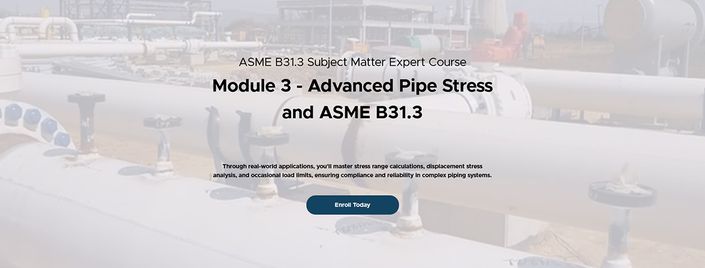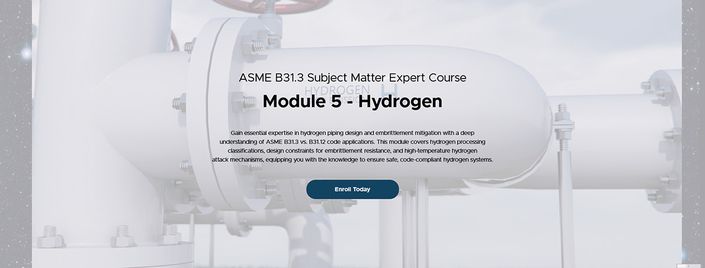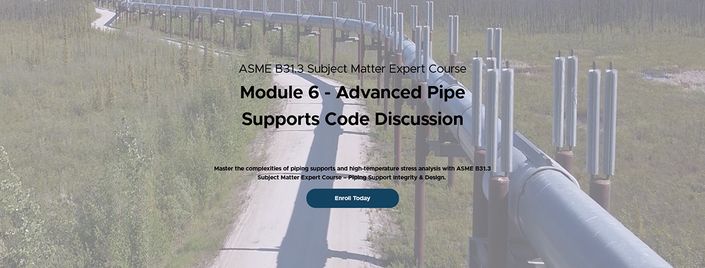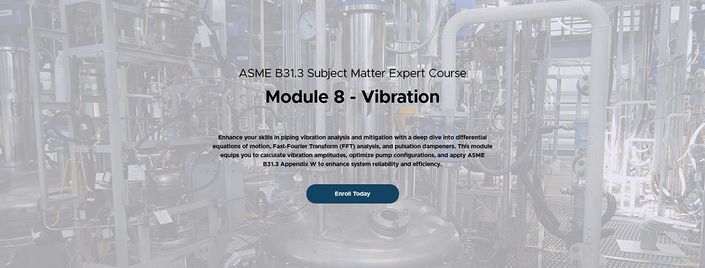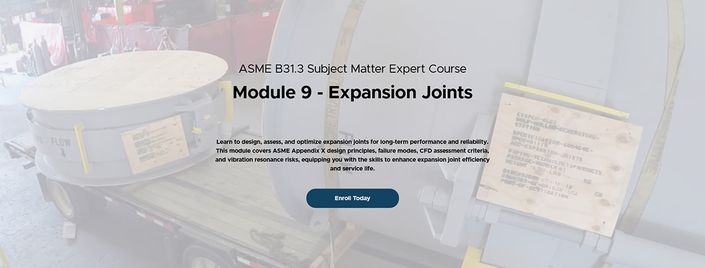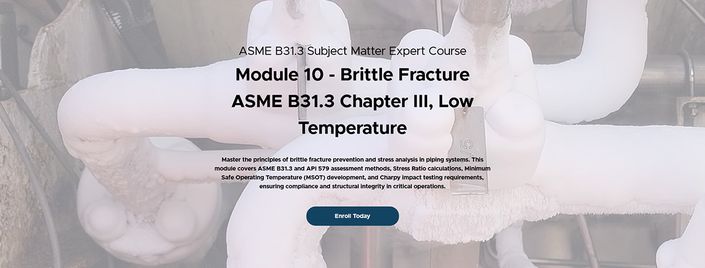
Module Description
This module provides an in-depth study of advanced flange technology, covering flange geometries, facings, and material selection for high-temperature applications. Students will explore thermal conductivity’s impact on flange integrity, startup and shutdown effects, and stainless steel performance in elevated temperatures. Hands-on case studies will focus on flange class selection, bolt torque determination using ASME PCC-1, and the role of bolt materials in thermal loading. The module also includes a review of federal and state regulations, ensuring compliance in flange design and operation.
Learning Objectives
After completion of this course, the student will earn Two (2) PE/PDH Credit towards being a Subject Matter Expert (SME).
When the student completes Module Seven: Flanges, the student will be able to:
- Graphically sketch 3 different flange geometries.
- Graphically sketch 3 different flange faces and identify the strengths and weaknesses of
each. - Define graphically the role of thermal conductivity in high temperature flange deformation
and select the correct material for a given high temperature flange set. - Pictorially describe the exact role of process startup and shutdowns on given high
temperature flange set with a focus on the flange bore. - List the 3 pros and 3 cons of the use of stainless steel in high temperature flange design.
- Calculate the code compliant with initial bolt assembly torquing/tensioning values for a
given flange size for a given pressure class. -
List 3 engineering codes, 2 federal and 1 state law with respect to flange design and
operation.
Meet Your Instructor
Subject Matter Expert: Rotating Equipment, Vibration, Fatigue, and Fracture Mechanics
Launch Special: Enroll in the full course for $1,995
(over $500 in savings).
Offer expires May 2, 2025





